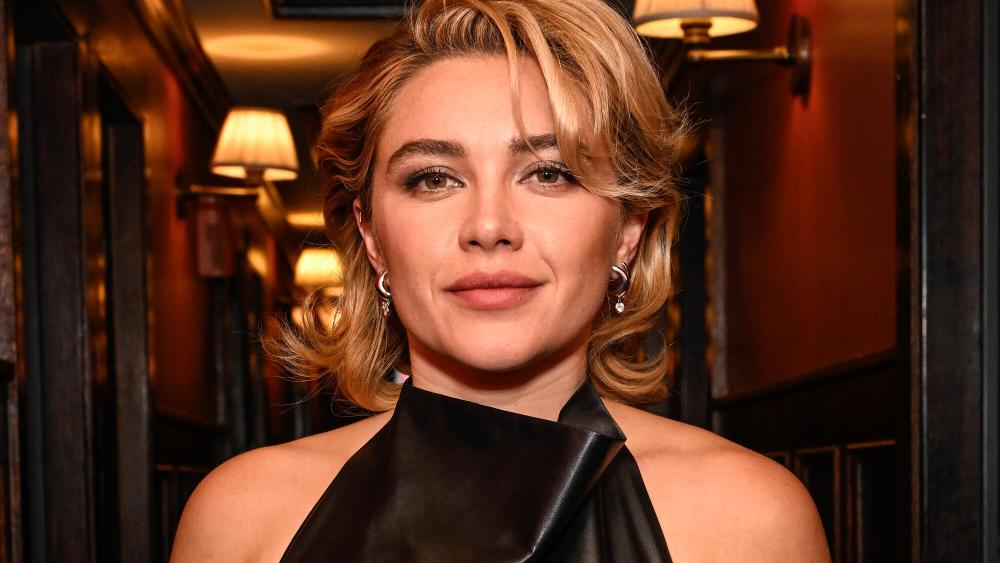Florence Pugh appeared on the latest episode of “The Louis Theroux Podcast” and spoke candidly about her experience with an intimacy coordinator on a movie set. Intimacy coordinators have become an industry standard, but the job has proven divisive in Hollywood. Pugh explained that the job involves filming sex scenes with maximum safety for the actors involved, adding, “It’s not to get in the way. It’s not to confuse or make things more complicated or awkward. I’ve had good and bad.”
Gwyneth Paltrow and Jennifer Lawrence recently made headlines when they said they didn’t feel the need to use intimacy coordinators on set because they trusted their co-stars to be professional.
“We didn’t have[an intimacy coordinator]or maybe we did, but we didn’t really[utilize]… I felt really safe with Rob[Pattinson]. He’s not a pervert,” Lawrence said of making “Die My Love.”
Paltrow said that while filming an intimate scene with Timothée Chalamet on the set of Marty Supreme, she told the intimacy coordinator to “step back a little bit,” adding, “I don’t know about kids who are just starting out, but as an artist I would feel very stifled if someone was like, ‘Okay, I’ll put my hand here.'”
Pugh noted that she has shot many sex scenes in the past without an intimacy coordinator. Although she has always been “very confident” and “very happy in her own skin,” the Oscar nominee recalled a time on set when someone used “completely inappropriate” language to stage a sex scene and she didn’t have an intimacy coordinator to protect her.
“But my perspective on it is also changing because I’m having a great experience with the intimacy coordinator right now,” Pugh said of filming the sex scenes. “That being said, there were also terrible instances where someone made it so weird and awkward that they wanted to be part of the set in a way that wasn’t really helpful and helpful. And I think that’s still a job figuring itself out.”
“I can say that working with some great people on the sex scenes has helped me make more sense,” Pugh said. “I was able to find the story of what sex is, what sex is like, how we touch each other, and how long we have sex.”
“Everyone’s just doing their job to make a little bit of a difference on set. And when I worked with a great coordinator, I thought, ‘Wow, this is what I was missing: not just shooting sex scenes, but understanding the dance of intimacy,'” Pugh said. “Some good and some bad, but through the good I learned how effective it can be.”
Pugh believes the intimacy coordinator has given female actors more freedom on set. She said being a woman was “a little bit of a hassle” during filming. Because “they say it’s a nightmare, so it’s not really a problem.”
“I remember doing a scene where I was crying, and there were all certain beats that I needed to get, especially certain lines,” Pugh recalled. “I’ve done it probably about six times, and each time I start in a tear-free state and then I have to gear up. So I have to stay in that state. And we figured it out, and the director said he’d like to do it again. And when I’m in that state, I’m a little mushy, so I’m like, ‘Okay, let’s do it again.’
Pugh said that as a woman, she would never raise her voice on set and tell the director that such an emotionally draining scene didn’t need another take. A male co-star was needed to do it for her.
“My co-star went to the director and said, ‘Don’t do that, don’t put her through that. She knows it. We know it. You’ve got close-ups, you’ve got wide-open, don’t do that,'” Pugh recalled. “Then I was in the tent and I realized, ‘Oh, I couldn’t have said that, because if I did that, they wouldn’t have accepted me.'”
“The Louis Theroux Podcast” is available on Spotify.

